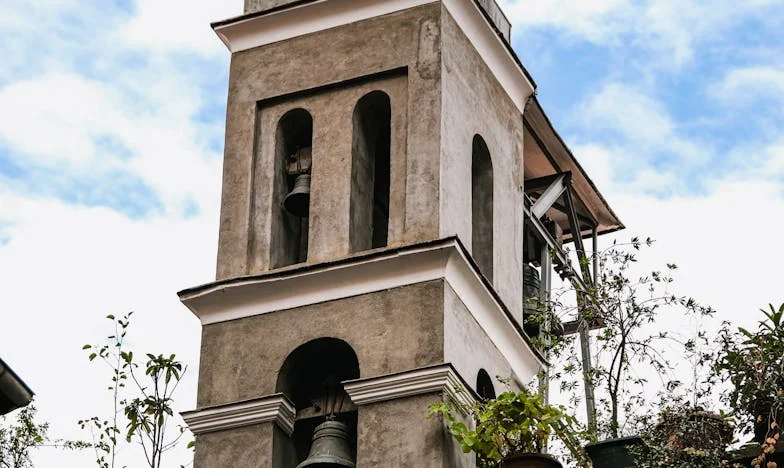The Vacation That Made Me the Black Sheep
“You’re really going to leave us, Mom? For what? A yoga retreat?”
My seventeen-year-old son, Ethan, stood in the kitchen, cereal bowl clutched in his hand, eyes wide with disbelief. My husband, Mark, didn’t even look up from his phone. The air was thick with the scent of burnt toast and something far more bitter: disappointment.
I stared at my suitcase by the front door. It looked so small, so out of place in a home cluttered with sports gear, laundry baskets, and half-finished science projects. But for the first time in twenty years, that suitcase was packed just for me.
“It’s only a week,” I said, voice trembling. “I need this. I haven’t taken a break since before you were born, Ethan. I just—”
Mark cut me off. “What about your responsibilities? The PTA meeting is on Thursday, and Savannah has her dance recital Saturday.”
“I know. I’ve arranged for everything. My sister will take Savannah. I left notes for dinner. It’s all covered.”
But it wasn’t logistics that bothered them. It was my audacity—my nerve—to put myself first. A mother’s job is never done. A wife’s duty is to put her family before herself. That was the unspoken rule in the Miller household. And, apparently, in all our neighbors’ homes too, judging by the texts from my mother and the group chat’s passive-aggressive gifs.
I should have felt guilty. Maybe I did, a little. But beneath it all, there was a spark of something new. Hope? Freedom? I wasn’t sure, but it propelled me out the door and into the Uber, where the driver glanced at my tear-streaked face in the rearview mirror and kindly said nothing.
At the airport, I hesitated over my phone. Mom: “Maybe you should come over here instead. You know your father isn’t well.” My sister, Rachel: “Are you really leaving the kids with Mark? I hope he remembers Savannah’s allergies.”
I silenced my phone, heart pounding. I felt like a criminal.
The retreat in Sedona was everything I needed: red rocks, quiet mornings, strangers who didn’t care who I was or who needed me. I did yoga, hiked, ate meals without anyone asking for ketchup or complaining about the broccoli. For the first time in decades, I could hear my own thoughts.
But every night, guilt gnawed at me. Mark’s texts were short. Ethan sent one-word replies. Only Savannah, my sweet ten-year-old, messaged every night: “Miss you, Mommy. Daddy made spaghetti again. I wore the blue dress.”
On the third day, my mom called. I almost didn’t answer. “You know, honey, your father really misses you. And I heard from Rachel that Mark seemed… frazzled at the recital. Are you sure this is what’s best for the family?”
The words stung. Was I being selfish? Was this retreat just an escape from the life I’d built, the people I loved?
At the final group session, the instructor, Gloria, asked us, “What do you fear most about going home?”
I blurted out, “That they won’t need me. Or worse, that they won’t want me anymore.”
Gloria smiled gently. “Or maybe they’ll see you differently. Maybe you’ll see yourself differently.”
I flew home with a heavy heart, bracing myself for what awaited me. The kids barely looked up when I walked in. Mark offered a perfunctory hug. Dinner was ordered in—Thai food, my favorite, but nobody asked me how the retreat was. I felt invisible, and then, all at once, glaringly obvious: the black sheep.
That night, as I unpacked, Ethan came to my doorway. “Dad said you must’ve had fun. Grandma says you’re acting weird.”
I sat on the edge of the bed, fighting tears. “Ethan, do you think it’s wrong for me to take care of myself?”
He shrugged. “I don’t know. I just missed you. Savannah cried at the recital. Dad forgot her shoes.”
A pang of guilt. “I’m sorry. I’m still your mom. I just… needed to remember who I am besides that.”
He hesitated. “Will you go away again?”
“Maybe. But not for a while. And maybe next time, I’ll bring you with me.”
In the following days, I was met with cold shoulders and whispered conversations. My mom called less. Rachel posted a cryptic status about “family priorities.” Mark buried himself in work. I felt more alone than ever. Yet, in the stillness, I found a quiet strength. I started walking in the mornings, alone. I signed up for a painting class. Little by little, I reclaimed pieces of myself I hadn’t realized I’d lost.
But the price was high. At Thanksgiving, my mother looked across the table and asked, “Are you happy now, Emily?”
I met her gaze. “I think I’m learning how to be.”
Sometimes, I wonder if the loneliness is worth it. If loving myself means losing the family I’ve spent my life building. But then I remember the sunsets in Sedona, the laughter in the yoga studio, the taste of freedom. Maybe loving myself isn’t betrayal. Maybe it’s the first step to loving them better.
Would you risk your family’s approval to find yourself again? Where is the line between duty and self-love, and who gets to draw it?
